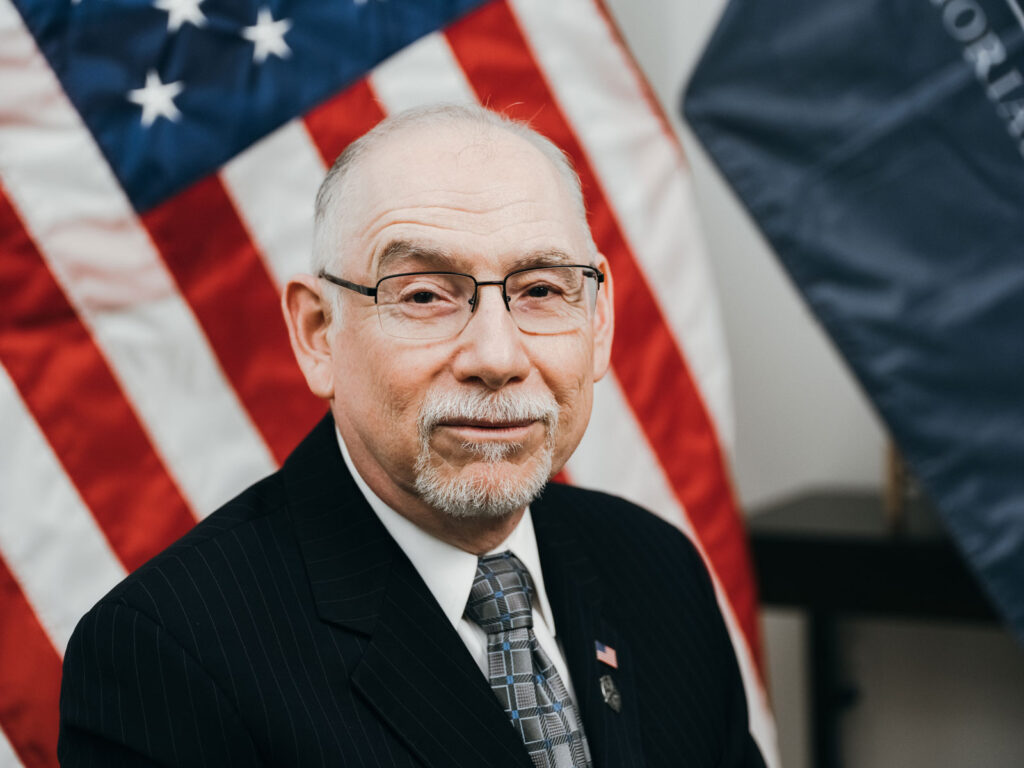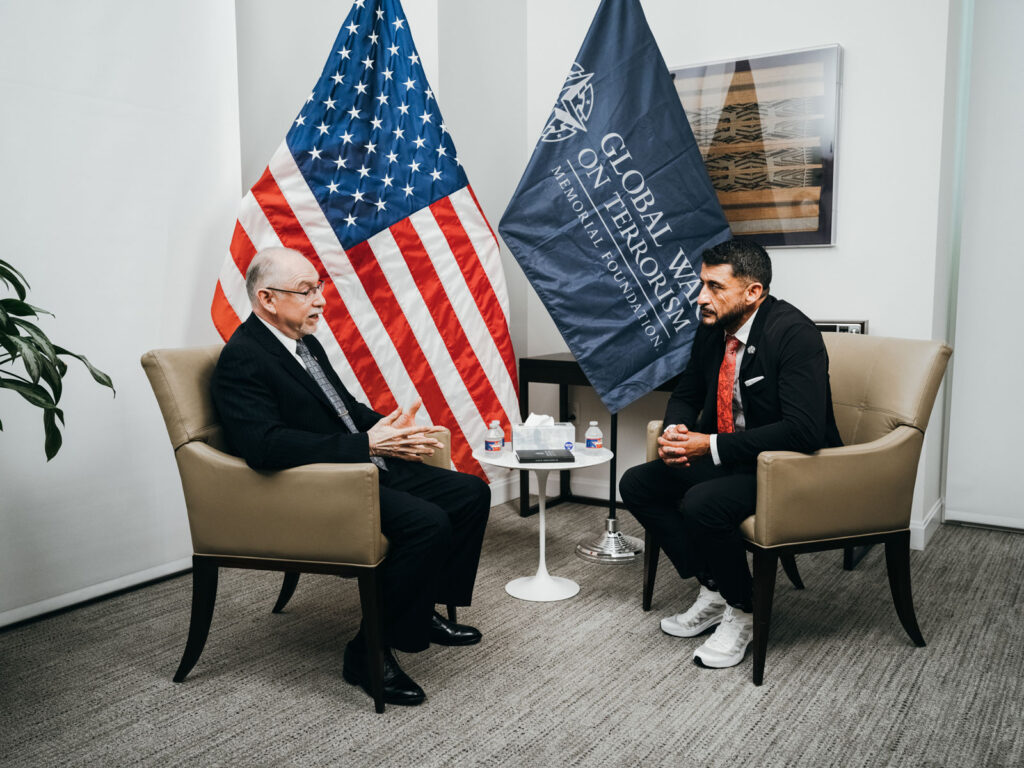Alex Hernandez is a distinguished veteran whose 26-year career in the U.S. Army is a testament to a legacy of leadership, resilience, and service. Inspired by the camaraderie of Vietnam veterans, he rose through the ranks to become a Sergeant Major. After his career in the Army, Alex was recruited by the CIA and became a member of Team Alpha, the storied CIA team, which deployed behind Taliban lines weeks after 9/11.
Now serving on the Global War on Terrorism Memorial Foundation’s Design Advisory Council, Alex reflects on the pivotal moments in his career, the unbreakable bonds forged with fellow service members, and the lessons of service and sacrifice that define the Global War on Terrorism.
Q: Can you share a little about your background and what led you to service?
I was born and raised in Waukegan, Illinois. While my uncles served in World War II, they rarely spoke about their experiences, so I never really considered myself as growing up in a military-type family. My grandfather owned several gas stations, where I spent my summers working as an attendant. Many of the people who came in were Vietnam veterans whose camaraderie and shared connection deeply inspired me. Their humor and focus left a lasting impression, and ultimately motivated me to join the military.
Q: Can you tell me about your first deployment?
My early training was in the 10th Group during the President Carter era. It was shaped by limited budgets and a focus on unilateral missions rather than collaboration with foreign forces. Our team maintained skills by training National Guard units stateside in places like Utah, Montana, and Nevada. My second team sergeant emphasized unconventional warfare—recruiting, training, and leading indigenous forces—which became foundational for my later career.

Q: How did the culture in the Special Activities Division at the CIA differ or align with your military experience?
The agency’s mission is human intelligence, often recruiting foreigners, but I came in as an older hire with over 20 years of military experience, not fitting the typical mold. What struck me most was the immense decision-making authority I had as a GS-13, often making critical choices on the ground without time to consult others. The reason for that is because you’re on the ground someplace – maybe recruiting an asset or working to gain some intelligence that would benefit our nation – you don’t have the time to send messages back and let someone consider the outcomes or legalities.
Q: What were your initial thoughts on September 11, 2001?
I knew right away that this was Counterterrorism. And I knew right away that we needed to start ramping up to go and do something. I used the word “avenge”. We had to find out who the perpetrators were, and we had to get them. That’s what I was thinking initially, and then my focus turned immediately to all the people because it was surreal to watch those buildings collapse knowing how many innocent lives were inside.
Q: What were the sequence of events following September 11th?
Within 48-72 hours, plans emerged to return to Afghanistan and start an insurgency against the Taliban. Teams were formed to connect with tribal leaders for joint operations. My team faced setbacks—losing a member to another group and having to give up gear to outfit others. We adapted by integrating a senior officer with regional expertise as a team leader, while I shifted to deputy and team sergeant, focusing on mission readiness and smart execution.
Q: Specifically, can you share more about your mission in those critical early days after 9/11 as part of Team Alpha?
After a long career with the U.S. Army, I was recruited by the Central Intelligence Agency and became a member of the eight-member Team Alpha – the storied CIA team which deployed behind Taliban lines weeks after 9/11. This team was established to provide crucial intelligence and establish critical relationships with Afghan contacts such as Abdul Rashid Dostum, while living in perilous conditions with little auxiliary support.
While in Afghanistan, Team Alpha was eventually joined by what became known as the Green Beret “Horse Soldiers.” Together, we laid the groundwork to successfully capture the key Afghan city of Mazar-i-Sharif alongside Dostum and his Northern Alliance forces.
Q: As a leader, what was your top priority at that time?
My priority was ensuring survivability. I constantly reminded my team: “You have to be thinking about your way out of the box. Spend 15 percent of your time thinking, ‘How do I stay alive?” I gave constant reminders — it was the best advice I could offer.
Q: As we build this Memorial, what do you hope it will represent?
I want this Memorial to ignite a deep sense of patriotism, a love for America—because when we say America, it’s really about the people. It’s the people that make up this Nation. I want it to remind us of who we are and remember the common thread that brings us together.
When I look at the Memorial, I want to feel that resilience, that strength, we showed as a Nation after 9/11. This Memorial should also honor the personal sacrifices made by so many on so many levels—individual, family, and community. From first responders to nonprofit workers to veterans trying to make each other whole, it’s about all the people who continue to contribute to this cause in so many ways.



